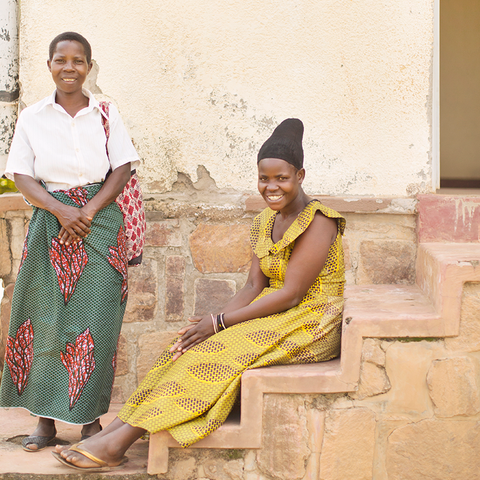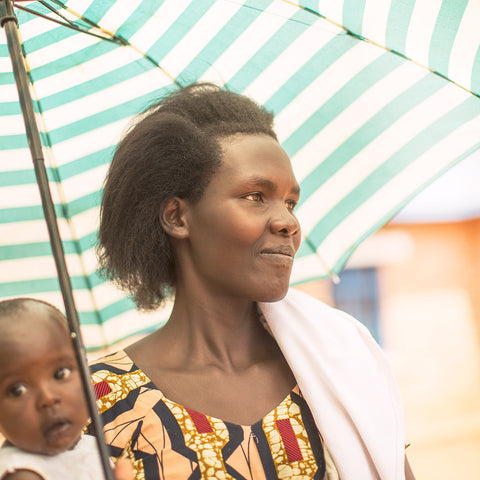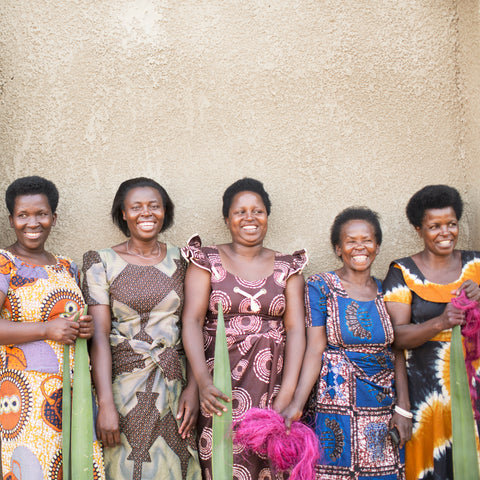According to the World Bank, only 45% of women in Rwanda have access to formal financial institutions. Many people lack the collateral and understanding of how financial products can improve their lives. Savings groups can address this challenge by lowering these barriers and making access to the financial domain easier and less intimidating.
Enter Indego Africa’s Igiceri Program – a formal savings group devoted to serving the financial needs of artisan women and their businesses.
Indego’s Igiceri (“Coin”) Program emerged in late 2015 as the brainchild of a group of artisan women determined to save money for the future in an effective and innovative way. These artisans met each other at Indego’s Leadership Academy, an advanced business education program dedicated to building Rwanda’s next generation of powerful leaders and artisan entrepreneurs.
Each of the 20 inaugural members began by investing 100 RWF (~11 cents) per day. Today, more than 60 members across nine different Indego Africa partner cooperatives each contribute a minimum of 3,000 RWF per month with some members contributing two or three times that amount. Over nearly four years, the account has grown in value to more than 9.6 million RWF (~$10,667 USD).
“We do our best,” said Chantal, the president of Igiceri and the president of Imirasire Cooperative, one of Indego’s top weaving cooperatives. “Our objective is to save 30 million RWF and beyond. That way generations of women can benefit from this program.”
When Igiceri first launched, it was the first time many of the women had ever saved money, especially using a formal bank to make deposits and withdraw cash for loans.
“I am a developed woman in my village now,” said Eugenie, an Igiceri member from Covanya Cooperative. “Regularly saving money has helped me expand my business activities beyond what I could have dreamed before.”
How it works:
- Each woman who participates in the program has access to funds for loans to grow or start her own business.
- Igiceri members can request loans from the common fund when necessary, which they pay back with interest, thus allowing the group’s deposits to earn a return.
- Members attend quarterly meetings with Indego Africa’s local staff to gather bank slips, set objectives, and discuss ways to save and manage the group’s funds.
- Many members of Indego’s own staff in Rwanda have joined the program as contributing partners to motivate other cooperatives to join. They attend meetings, save a monthly amount, and have access to loans just like their artisan counterparts.
According to a 2017 study released in Proceedings of the National Academy of Sciences, savings groups can have a profound effect on women’s lives across the globe. “We see savings and business income increase,” said Dean Karlan, professor of economics at Yale and co-author of the study. “But importantly there is also a boost in women’s empowerment. As women get more access to these groups, their say in household decisions also increases.”
To date, members of Indego’s Igiceri Program have started their own side businesses in breeding and selling livestock, making clothing, and selling household commodities. Members have also purchased plots of land for their cooperative enterprises as well as bicycles and motorcycles to improve their transportation routes to and from work.
Igisubizo, Indego’s partner cooperative of 50 Congolese women at the Kigeme Refugee Camp, learned about Igiceri through Indego Africa’s staff and fellow artisan trainers. Although they are still in training through the end of 2019, the women of Igisubizo have already saved 1.5 million RWF ( ~$1,667 USD) in their cooperative bank account and expressed interest in becoming Igiceri members. If they join, they will be the first refugee group to do so.
As Indego’s network of artisan partners grows to include groups of women like refugees who often lack access to financial tools and services, so too grows the value of savings groups like Igiceri. When women are financially included and can fully participate in the economy, they become engines of opportunity for their communities and their countries, and can be powerful drivers of global growth. For our artisan partners, that means creating better opportunities for generations of Rwandans, Ghanaians, Burundians, and Congolese to come.



